
Titanium corrugated tubes are flexible metal tubes formed from pure titanium or titanium alloys, formed with corrugations (waves) to enhance flexibility and surface area. The corrugation improves mechanical flexibility, vibration absorption, and heat transfer efficiency. These tubes are ideal for aggressive chemical environments, vacuum systems, and compact heat exchangers.

We offer
Custom corrugation pitch and depth
Can be bend as u tubes or other shapes.
Lengths from 0.5 m to 15 m or coil
End connections: Titanium flange, threaded, quick coupler
Optional coating: PTFE lined, insulation wrap
Send your drawing or application specifications-we deliver tailor-made solutions.

Raw Material Selection
Titanium corrugated tubes are manufactured from high-quality seamless titanium tubes conforming to ASTM B338 or B861 standards, typically in Titanium Grade 2 (commercially pure) or Grade 5 (Ti-6Al-4V) depending on strength and corrosion resistance requirements.
Tube Forming
The straight titanium tube is cut to length and surface-inspected to ensure it is free from cracks, scratches, and defects.
Corrugation Process
Corrugations are formed through cold forming or hot forming processes using precision dies to create annular (circular) or helical (spiral) corrugation shapes. This enhances the flexibility, pressure resistance, and fatigue strength of the tube.
Heat Treatment
Stress-relief annealing is performed after forming to remove residual stress, stabilize the microstructure, and improve service life.
End Fitting & Processing
Ends of the tubes can be customized with flanges, welding necks, threaded ends, or expanded sections to suit specific installation requirements.
Inspection & Testing
Standard testing includes visual inspection, dimensional check, hydrostatic test, and PMI. Additional NDT such as eddy current, dye penetrant, or ultrasonic testing can be provided upon request.
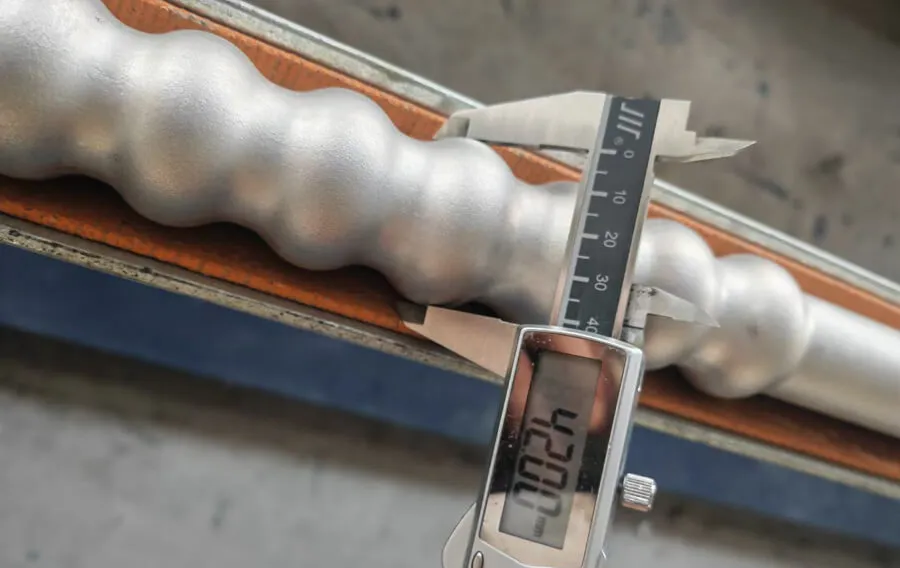
Titanium corrugated tubes undergo a comprehensive range of inspections and tests to ensure product quality, performance, and compliance with applicable standards. The following tests are common, as per customer requirements.
1. Visual Inspection
Check for surface defects such as scratches, dents, corrosion, or contamination.
Ensure surface finish meets contract requirements (pickled, polished, etc.).
2. Dimensional Inspection
Verify outer diameter (OD), wall thickness, corrugation pitch, tube length, bend radius, and ovality according to customer drawings or standards.
3. Dye Penetrant Testing (PT)
Used to detect surface-breaking defects such as cracks, laps, porosity, or lack of fusion, especially in welded or formed areas.
Suitable for titanium tubes after bending or welding.
Requires clean, oil-free surfaces for accurate results.
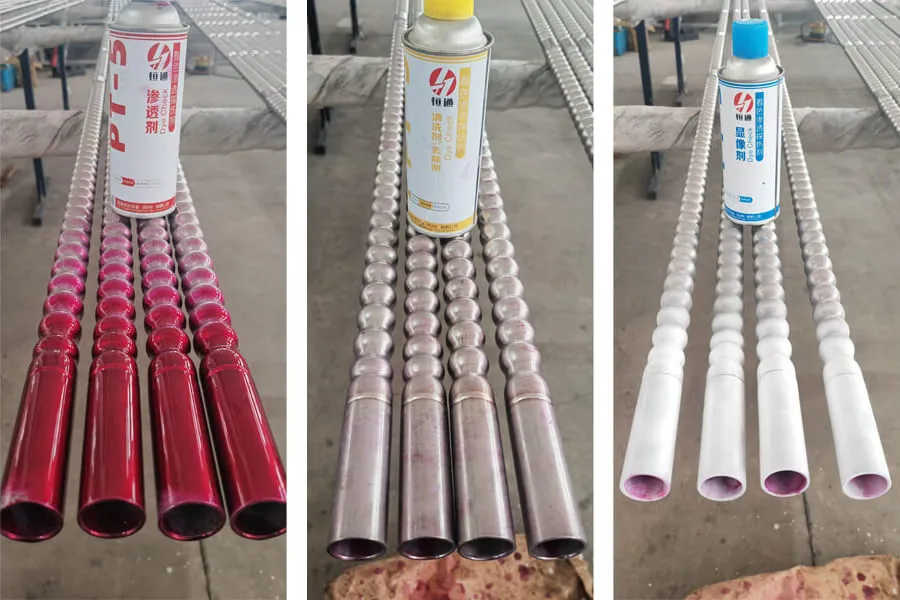
4. Hydrostatic Pressure Test
Apply water pressure (typically up to 600 bar) to verify tube strength and leak-tightness.
Hold pressure for a minimum soak time (e.g., 10 seconds) and inspect for leakage.
5. Air Leak Test
Air under pressure is applied and the tube is submerged in water to detect bubbles indicating leaks.
Optional method depending on application.
6. Ultrasonic Testing (UT)
Used to detect internal flaws such as inclusions, cracks, or wall thickness inconsistencies.
Effective for seamless titanium tubes and bent sections.
7. Eddy Current Testing (ET)
Electromagnetic method for detecting surface and near-surface defects and verifying material conductivity.
Useful for corrosion evaluation and detecting cracks in thin-walled tubes.
8. Positive Material Identification (PMI)
Chemical composition verification to ensure material grade compliance (e.g., Grade 2, Grade 5 titanium).
Usually done by X-ray fluorescence (XRF) or optical emission spectroscopy.
9. Mechanical Testing (Sample-based)
Tensile strength, yield strength, elongation per ASTM standards.
May include hardness testing and microstructure analysis.
10. Documentation & Certification
Provide Mill Test Certificate (MTC) per EN 10204 3.1 or 3.2
Inspection reports for all NDT and dimensional checks.
Tubes are capped with soft plastic protectors at both ends.
Wrapped in polyethylene film to protect from moisture and dust.
Packed securely in fumigated, export-grade wooden crates to prevent damage during transit.
Foam or padding separators used to avoid abrasion between tubes.
Labels include material grade, heat number, dimensions, and order information.
Custom packaging options available on request.
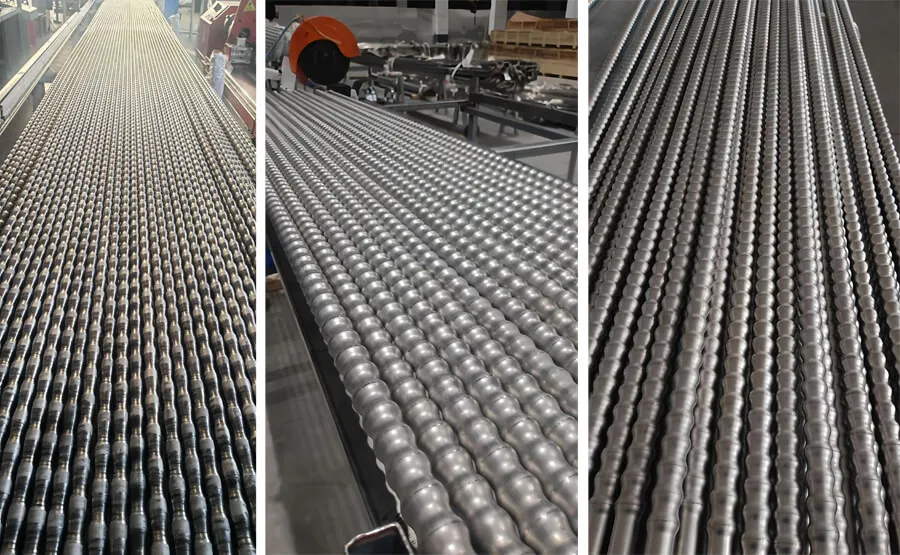
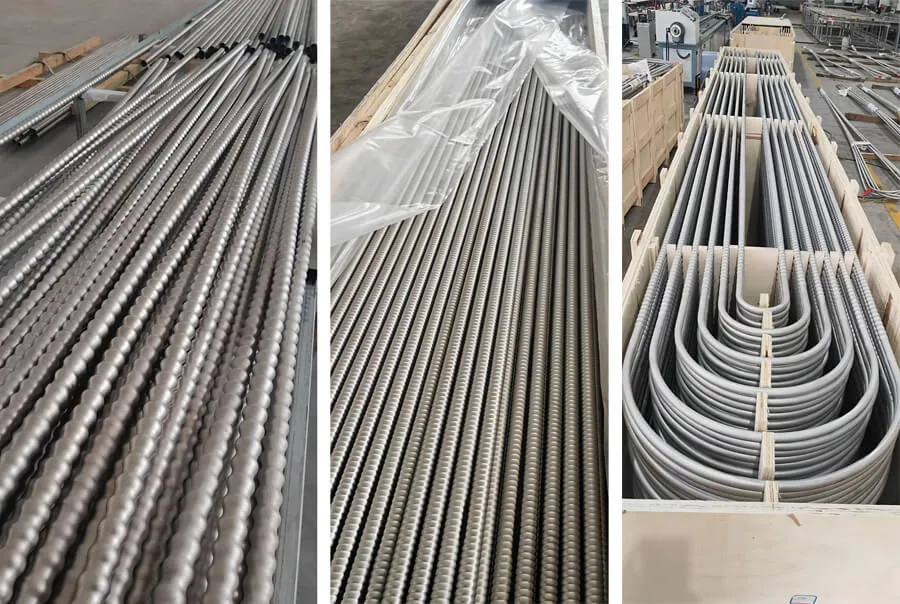
Titanium corrugated tubes are ideal for use in highly corrosive, high-temperature, or dynamic environments. Common application fields include:
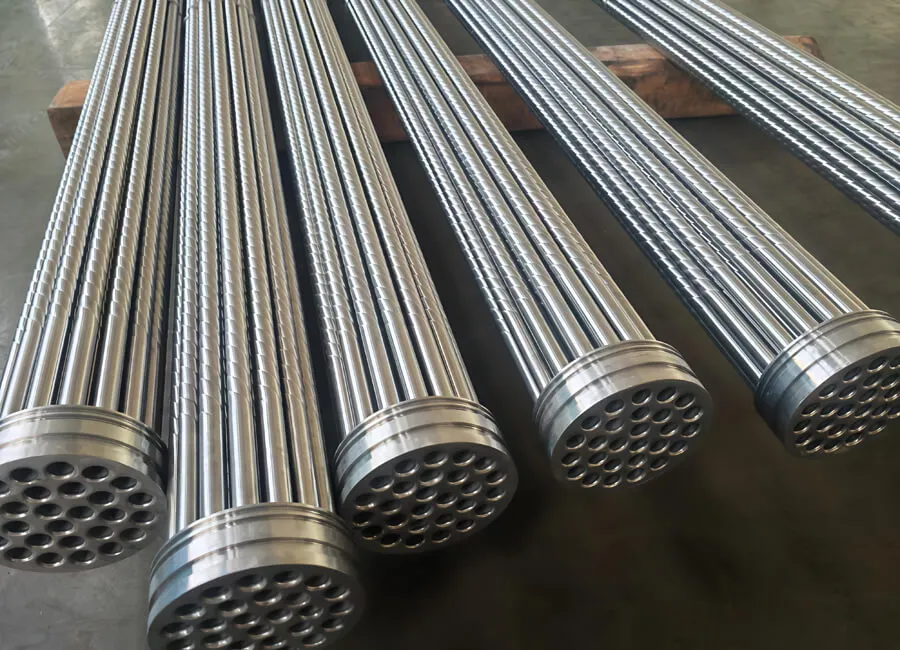
Heat Exchangers & Condensers
For thermal transfer systems in chlorinated water, seawater, or acidic environments.
Chemical & Petrochemical Plants
As flexible connectors or expansion joints in pipelines carrying strong acids, solvents, or corrosive gases.
Aerospace & Defense
In aircraft engine systems, fuel lines, and vibration-absorbing connectors.
Marine & Offshore Engineering
For seawater cooling systems, exhaust systems, and desalination units.
Vacuum & Cryogenic Applications
Suitable for ultra-high vacuum systems and cryogenic pipelines using liquid nitrogen or helium.
Nuclear Power Industry
In high-purity, corrosion-critical areas such as reactor cooling systems or radiation exhaust.
Medical & Laboratory Equipment
For ultra-clean, corrosion-resistant tubing systems in pharmaceutical or cleanroom environments.